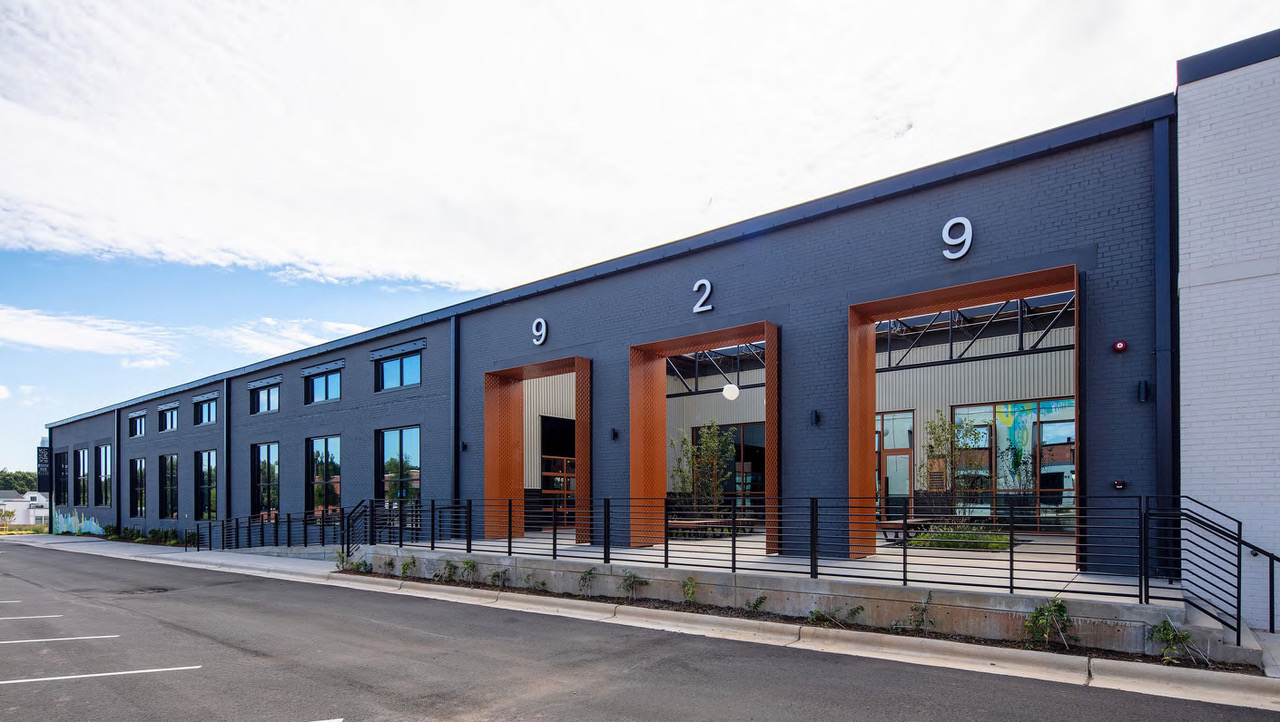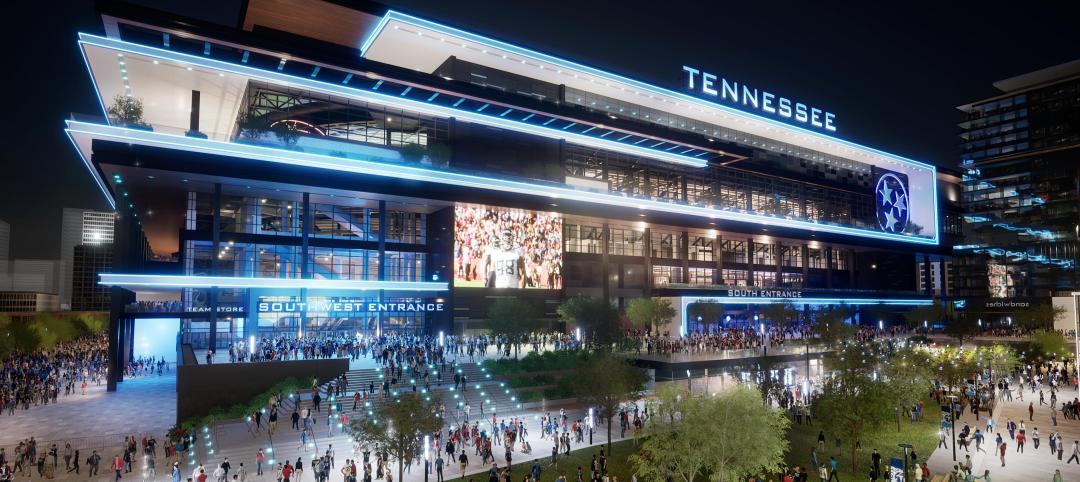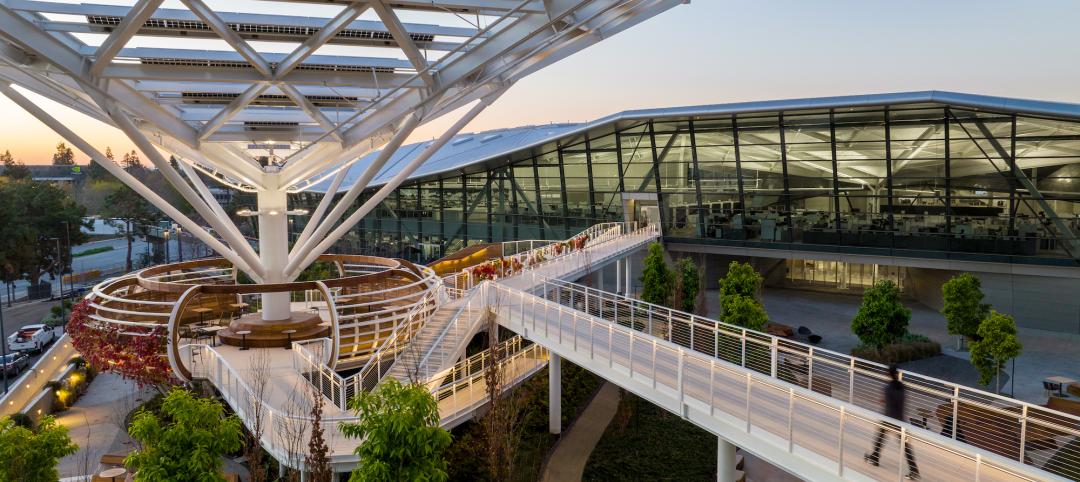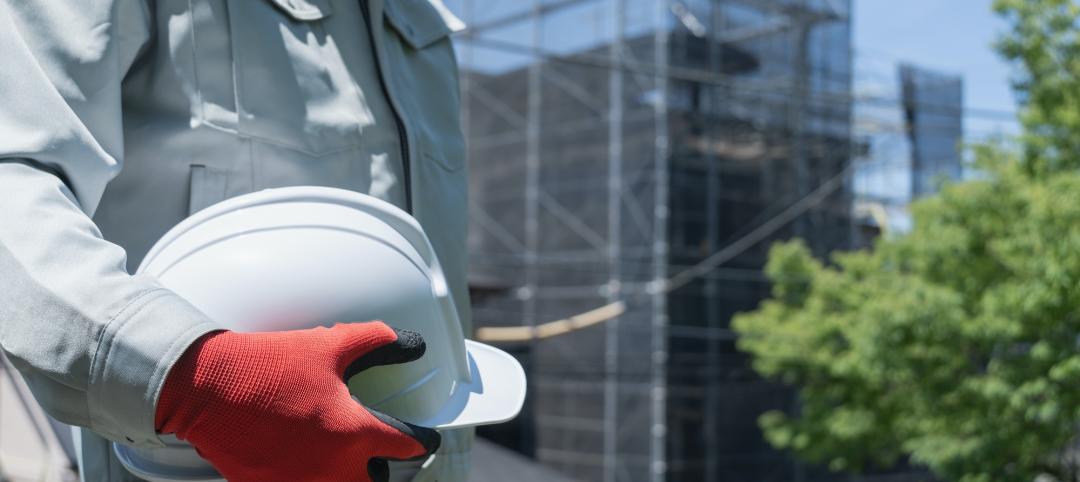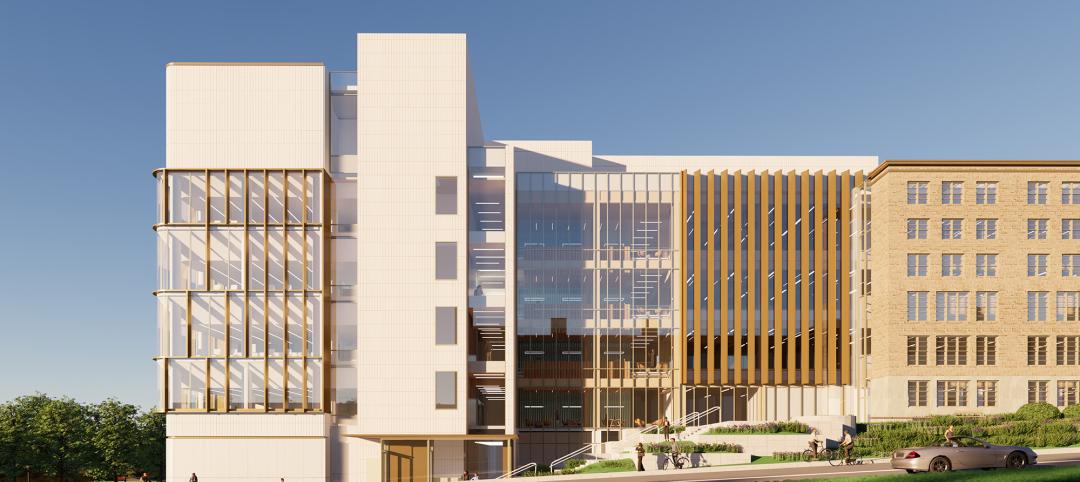Swinerton, the national general contractor, expanded into the Southeast U.S. in 2018. Since then, the firm’s Carolinas Division has generated at least $359 million in revenue from commercial construction projects that have run the gamut from corporate interiors and multifamily to healthcare and mass timber builds.
Of that total, Swinerton’s Carolinas Division is on pace to generate $120 million in revenue in 2023 alone. Among its projects nearing completion is the adaptive reuse within a former warehouse building in West Charlotte, N.C.’s Lower Tuck mixed-use development for office space: a $2.8 million renovation to create a 28,000-sf, two-story space that houses an international nonprofit disaster relief organization; and a nearly $1 million 9,000-sf expansion for an existing tenant, the tool manufacturer Positec, that adds offices, a conference room, and a break room.
These two upgrades were performed by the division’s Special Projects team. Each of Swinerton’s 20 offices nationwide has its own Special Projects crews, which allow the firm to position itself as a “community based GC” that is run like a boutique business, says Jason Hlewicki, Director of Special Projects for the Carolinas Division.
What constitutes a “special project,” however, is a little amorphous. Hlewicki says his special projects team is not separate from the division’s other employees. Nor is a project deemed “special” because of its size or cost: Hlewicki says his team has completed a renovation for a local restaurant group in 56 days, and has also worked on 100,000-sf $40 million jobs.
While special projects run across Swinerton’s practices, their designation “depends on the project’s characteristics and makeup,” he explains. Examples include commercial interiors, off-hours work, medical office building interiors, classroom renovations, and sports complexes.
Division serves a growing region
Hlewicki says that having a special projects team within a division allows Swinerton to be nimble and to pivot when needed, partly by pairing “the best possible staff with the project.” Another competitive advantage, he says, includes Swinerton being a self-performing GC whose crews are made up of its employees. (Swinerton is employee-owned.)
The Carolinas Division completes between 20 and 30 special projects annually, and therefore it deals with a lot of different AEC firms and developers. (Third & Urban is the developer of the Lower Tuck project.) it’s been Hlewicki’s experience that special projects allow Swinerton more room for creativity, especially when the firm is brought on early as part of the project’s design-build team.
The Carolinas have enjoyed a steady influx of people and businesses in recent years, a trend that’s expected to continue going forward. Hlewicki says demand for his firm’s services, both for new builds and renos, “is moving in an exciting direction.” Those services include Swinerton’s Facilities Solution program, a national platform that provides maintenance to existing clients using dedicated crews. “This keeps Swinerton top of mind with our customers,” says Hlewicki.
Related Stories
Market Data | Sep 5, 2023
Nonresidential construction spending increased 0.1% in July 2023
National nonresidential construction spending grew 0.1% in July, according to an Associated Builders and Contractors analysis of data published today by the U.S. Census Bureau. On a seasonally adjusted annualized basis, nonresidential spending totaled $1.08 trillion and is up 16.5% year over year.
Sports and Recreational Facilities | Sep 1, 2023
New Tennessee Titans stadium conceived to maximize types of events that can be hosted
The new Tennessee Titans stadium was conceived to maximize the number and type of events that the facility can host. In addition to serving as the home of the NFL’s Titans, the facility will be a venue for numerous other sporting, entertainment, and civic events. The 1.7-million sf, 60,000-seat, fully enclosed stadium will be built on the east side of the current stadium campus.
Office Buildings | Aug 31, 2023
About 11% of U.S. office buildings could be suitable for green office-to-residential conversions
A National Bureau of Economic Research working paper from researchers at New York University and Columbia Business School indicates that about 11% of U.S. office buildings may be suitable for conversion to green multifamily properties.
Adaptive Reuse | Aug 31, 2023
New York City creates team to accelerate office-to-residential conversions
New York City has a new Office Conversion Accelerator Team that provides a single point of contact within city government to help speed adaptive reuse projects. Projects that create 50 or more housing units from office buildings are eligible for this new program.
Codes and Standards | Aug 31, 2023
Community-led effort aims to prevent flooding in Chicago metro region
RainReady Calumet Corridor project favors solutions that use natural and low-impact projects such as rain gardens, bioswales, natural detention basins, green alleys, and permeable pavers, to reduce the risk of damaging floods.
Giants 400 | Aug 30, 2023
Top 75 Engineering Firms for 2023
Kimley-Horn, WSP, Tetra Tech, Langan, and IMEG head the rankings of the nation's largest engineering firms for nonresidential buildings and multifamily buildings work, as reported in Building Design+Construction's 2023 Giants 400 Report.
Building Team | Aug 28, 2023
Navigating challenges in construction administration
Vessel Architecture's Rebekah Schranck, AIA, shares how the demanding task of construction administration can be challenging, but crucial.
Laboratories | Aug 24, 2023
Net-zero carbon science center breaks ground in Canada
Designed by Diamond Schmitt, the new Atlantic Science Enterprise Centre (ASEC) will provide federal scientists and partners with state-of-the-art space and equipment to collaborate on research opportunities.
Multifamily Housing | Aug 23, 2023
Constructing multifamily housing buildings to Passive House standards can be done at cost parity
All-electric multi-family Passive House projects can be built at the same cost or close to the same cost as conventionally designed buildings, according to a report by the Passive House Network. The report included a survey of 45 multi-family Passive House buildings in New York and Massachusetts in recent years.
Regulations | Aug 23, 2023
Gas industry drops legal challenge to heat pump requirement in Washington building code
Gas and construction industry groups recently moved to dismiss a lawsuit they had filed to block new Washington state building codes that require heat pumps in new residential and commercial construction. The lawsuit contended that the codes harm the industry groups’ business, interfere with consumer energy choice, and don’t comply with federal law.


